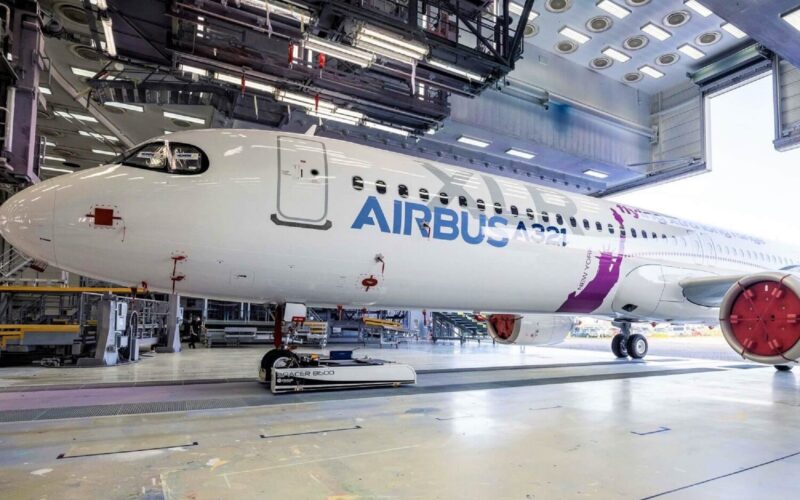Airbus reports double-digit revenue increase in 2022

Airbus posted its 2022 full year results on February 16, 2023, in which revenue increased by 13%, to € 58.8 billion for a reported Earnings before interest and taxes (EBIT) of €5.32 billion. This figure is slightly down from €5.34 billion reported in 2021 after taking a €300M net adjustment.
Airbus also provided an adjusted EBIT figure, excluding certain items to better reflect the underlying core business, which totaled €5.6 billion, an increase of 16% compared to the year before.
Consolidated net income was €4.24 billion, a small 0.5% increase compared to €4,21B reported in 2021.
Net commercial aircraft orders (that is, after cancellations are taken into account) increased to 820 from 507 the previous year. Airbus delivered 661 commercial aircraft in 2022, of which the bulk (516) were of the A320 Family. Airbus also delivered 32 A330s and 60 A350s.
The order backlog stood at 7,239 commercial aircraft at the end of 2022.
The commercial aircraft division drove revenue growth for the group, with a 15% increase, while Helicopters and Defence and Space reported more modest increases of 11% and 8% respectively.
The European manufacturer is ramping up production of its best-selling A320 family, expecting to achieve a monthly production rate of 65 aircraft by the end of 2024 and 75 aircraft per month in 2026.
Airbus is also producing three A330s and six A350s per month, although for the latter it is studying options to increase the rate to nine per month by the end of 2025 in order to meet growing demand for long-distance travel.
The planemaker also confirmed that the A321XLR, the longest-range version of this popular aircraft, is expected to enter service by mid-2024.
The company also delivered 344 helicopters and 10 A400M military transport aircraft in 2022.
Airbus is targeting 720 commercial aircraft deliveries and an adjusted EBIT of €6B in 2023.
On the sustainability front, Airbus has got its greenhouse gas emission reduction near-term targets approved as per the Science Based Targets initiative (SBTi) and it intends to reduce its Scope 1 and Scope 2 industrial emissions by up to 63% by 2030.
